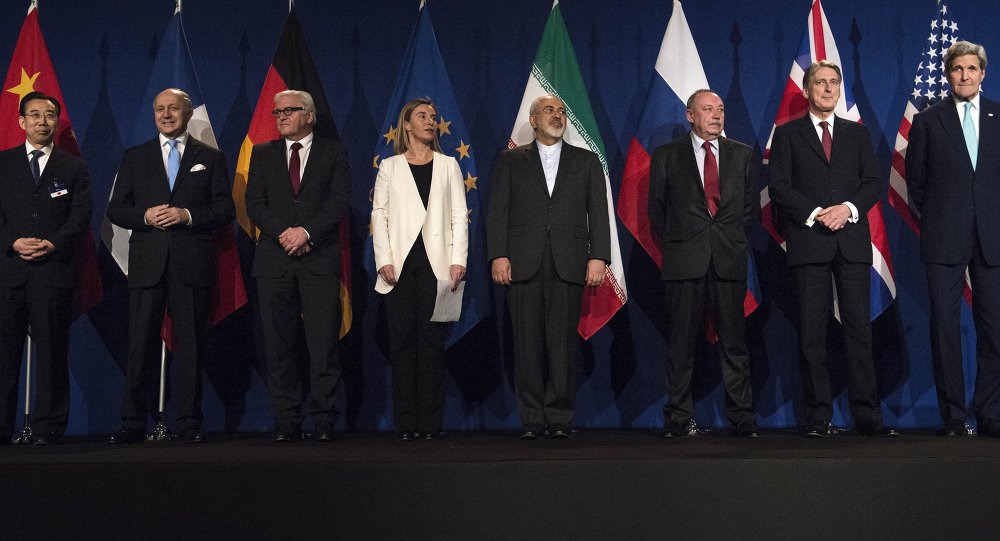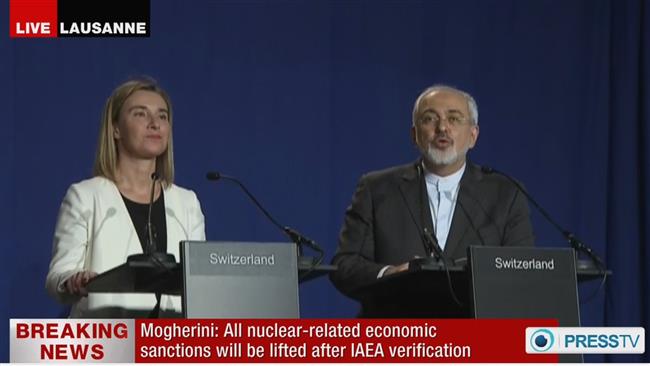The Iran Nuclear Deal: Highlights, High Hopes, and Haters
Much to the dismay, no doubt, of at least 47 US Republican Senators, a Joint Comprehensive Plan of Action (JCPOA) was reached concerning Iran's nuclear program Thursday, after 8 straight days of final-round negotiations, in Lausanne, Switzerland.
As the tentative agreement is released, official, media, and popular reaction runs from one extreme to the other. The agreement covers five different areas: enrichments, inspections and transparency, reactors and reprocessing, sanctions, and phasing.
This rough draft has to be molded and refined into a formal accord by June 30th and, as the text itself reminds readers, "nothing is agreed until everything is agreed." In the meantime, here are some highlights from the agreement, and reactions from across the spectrum.
EnrichmentReduction of centrifuges — Iran will reduce its installed centrifuges from 9,000 installed today to 6,104.
Level of Enrichment — For at least 15 years, Iran won't enrich any uranium to levels of over 3.67%
Facilities - For at least 15 years, Iran won't build any new enrichment facilities, and it will not enrich uranium, store fissile material or research the enrichment of uranium at its Fordo facility. Only the Natanz facility will be used for enrichment for the next 10 years.
Inspections and TransparencyInspector Access — The International Atomic Energy Agency (IAEA) will have access to all facilities, the complete supply chain to those facilities, uranium mines and mills (for 25 years), centrifuge production and storage facilities (for 20 years). It will be allowed to inspect sites, whether declared or not, and investigate suspicious or alleged sites.
Additional Protocol — Iran will sign the IAEA Additional Protocol, which is a safeguards regime that greatly expanded the IAEA's ability to keep an eye out for clandestine nuclear programs, as well as Modified Code 3.1, which mandates early notification of any new construction plans.
Reactors and ReprocessingArak - The heavy water reactor at Arak, which had generated worries that it would be used to produce weapons grade plutonium, will be redesigned for peaceful research and radioisotope production. Its original core will be removed and destroyed. Spent fuel will be shipped out of the country. For 15 years Iran won't accumulate excess heavy water or build any new heavy water reactors.
SanctionsEU & US — Once the IAEA confirms that Iran has completed all the nuclear-related requirements, US and EU nuclear-related sanctions will be lifted. Any backsliding by Iran, the US has warned, means the sanctions come back as well.
UN - Once Iran complies, UN Security council resolutions relating directly to nuclear activities will be lifted, but those relating to things like the transfer of sensitive technologies will be renegotiated. A dispute resolution process will be established, but if parties fail to find resolutions for conflicts arising from the JCPOA, UN sanctions can snap back into place.
Phasing10 years — limit enrichment capacity and R&D, centrifuge limitations, maintain one-year "breakout timeline" (the time needed to produce enough uranium for one nuclear weapon).
15 years — no new enrichment facilities or heavy water reactors, limited enriched uranium stockpile, extra transparency measures.
25 years — robust inspections of Iran's supply chain, access to uranium mines and mills
Permanent — adherence to the IAEA Additional Protocol, and the Nuclear Non-Proliferation Treaty (NPT).
Mixed Reaction"The political understanding with details that we have reached is a solid foundation for the good deal we are seeking, " said US Secretary of State John Kerry, acknowledging that many technical details are yet to be worked out.
France was cautious in its optimism, with president Francois Hollande saying: "France will be watchful… to ensure that a credible, verifiable agreement be established under which the international community can be sure Iran will not be in a position to have access to nuclear arms."
Israel's Strategic Affairs Minister Yuval Steinitz, however, did not join in praise of the deal, calling the framework "detached from a wretched reality." And Iran's Foreign Minister Mohamad Javad Zarif said "We're still some time away from reaching where we want to be," and that the deal didn't erase other political differences with the United States.
"We have built mutual distrust in the past," said Zarif, "So what I hope is that through courageous implementation of this some of that trust could be remedied. But that is for us all to wait and see."
In unofficial circles, reaction on social media is running the gamut between joyous celebration, and predictions of utter catastrophe.
Read more: http://sputniknews.com/military/20150403/1020403389.html#ixzz3WG3kKczf








